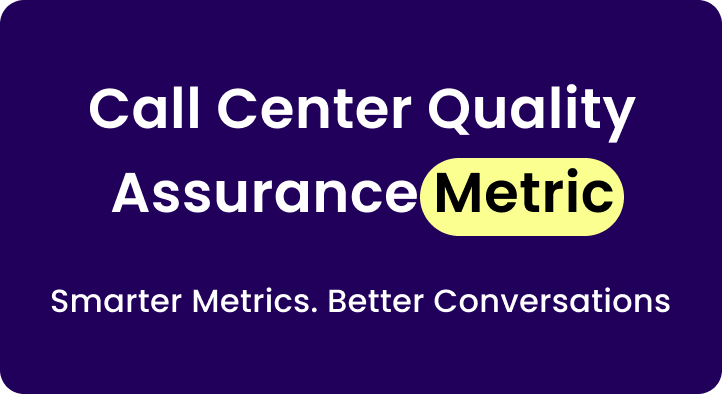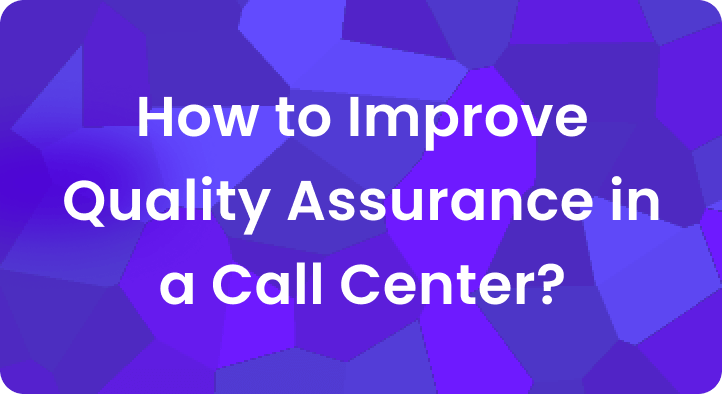Agent scorecards do more than evaluate performance – they unlock actionable coaching insights.
They give team leaders visibility into what’s working, what’s not, and how to help agents grow – fast.
Let’s break down exactly what scorecards reveal and how they elevate your coaching game.
1. Individual Strengths and Weak Spots
Scorecards help you see patterns in each agent’s performance.
You get a breakdown of key behaviors like:
- Product knowledge
- Empathy and tone
- Call handling time
- Compliance adherence
- Issue resolution
- Active listening
Instead of vague feedback like “improve your tone,” you can point to exact calls and moments. This gives agents clarity — and makes your coaching sessions more constructive.
Example: If an agent consistently scores low on “call control,” you can run mock calls or role-play scenarios to improve confidence and structure.
2. Skill Trends Over Time
Scorecards show how agent skills improve (or decline) over weeks and months.
This is crucial for:
- Tracking onboarding effectiveness
- Spotting burnout or performance dips
- Reinforcing good habits
Tip: Use monthly scorecard trends to tailor your coaching cadence. If an agent’s empathy scores are rising but resolution times are slipping, focus your next session on call efficiency strategies.
3. Root Causes Behind CSAT and FCR Drops
Scorecards don’t just measure agents – they help you diagnose why KPIs like CSAT or FCR are dropping.
You can correlate low customer satisfaction with:
- Missed soft-skill moments
- Poor issue diagnosis
- Long holds or transfers
This insight turns your coaching from guesswork to data-driven action.
Stat to know: Teams using performance scorecards reduce their CSAT-related churn by up to 21%.
4. Personalized Coaching Paths
Not every agent needs the same coaching.
Scorecards help you segment agents by skill level, so you can personalize coaching:
- High performers – leadership development
- Mid-tier – skill sharpening
- Struggling agents – targeted training
This avoids one-size-fits-all sessions and makes your time more impactful.
5. Data-Backed Performance Reviews
No more subjective feedback or vague performance ratings.
Scorecards give you quantitative proof of:
- What’s improved
- What’s consistent
- What’s slipping
This builds trust with agents – and gives them a clear roadmap for growth.
Bonus: You can include scorecard snapshots in quarterly reviews or incentive programs. It makes recognition and reward feel earned and transparent.
6. Coaching Opportunities from 100% of Calls
Traditional QA teams review less than 5% of agent calls. That’s barely scratching the surface.
With AI-powered auto QA and scorecards (like Enthu.ai’s), you can analyze 100% of conversations and flag coaching moments automatically.
That means:
- Less time searching for calls
- More time actually coaching
- No good (or bad) call gets missed
7. Coaching Confidence for Team Leads
New managers often struggle with giving feedback.
Scorecards give them structure and confidence. They can walk into a session with:
- Real examples
- Clear data points
- Defined improvement areas
It makes the conversation less emotional and more focused on growth.
8. Continuous Learning Culture
When agents see their scorecards regularly – and see how they’re being coached based on real data – it creates a feedback loop.
It encourages:
- Self-awareness
- Ownership of growth
- Motivation to improve
Your coaching program shifts from reactive to proactive.
Final Thought
Agent scorecards aren’t just for tracking. They’re for transforming.
With the right scorecard data, your coaching becomes faster, fairer, and more focused.
And your agents? They become more confident, consistent, and customer-focused.



